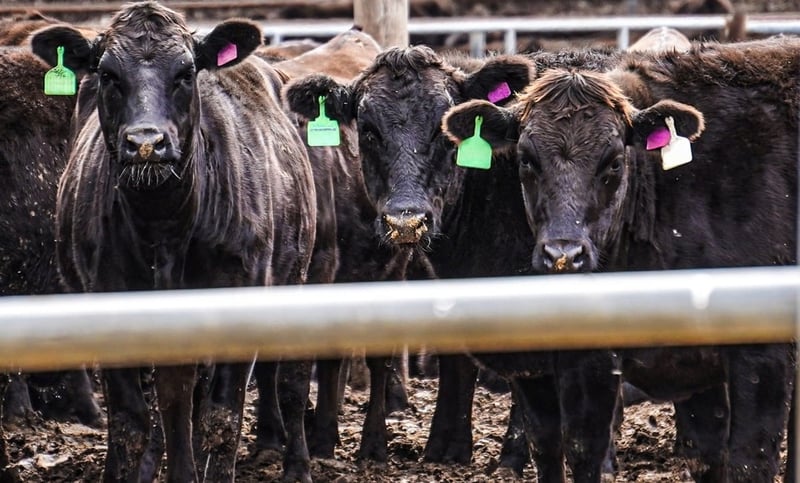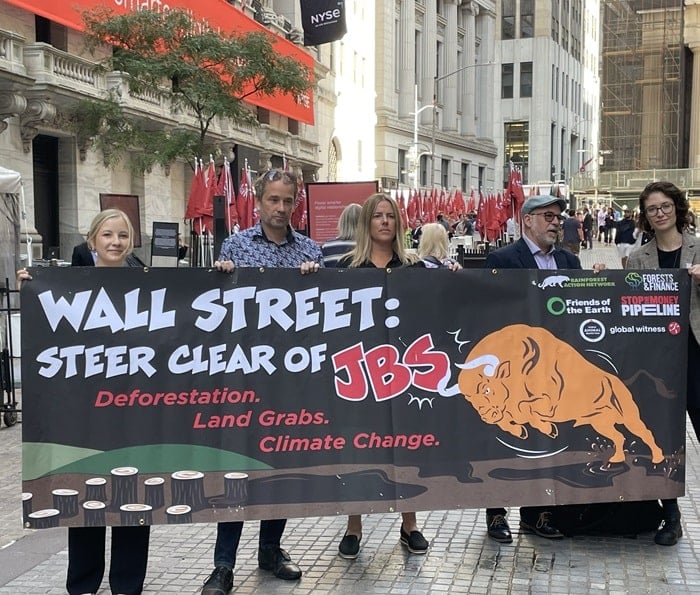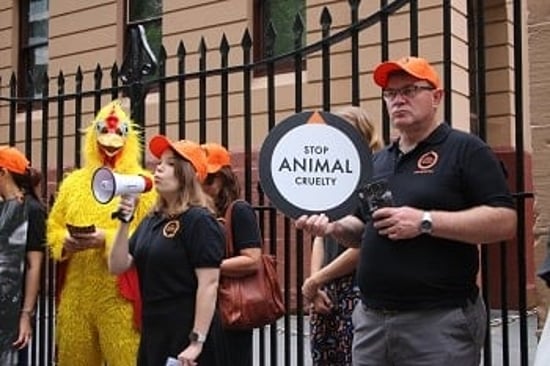
JBS, Australia’s largest meat company avoiding millions in taxes globally
News
New reports expose how JBS, Australia’s largest meat and processing company, has created a web of offshore companies to avoid paying corporate taxes in Australia, the US and other countries around the world.
Image credit: AnimalKind
Who is JBS
JBS Foods Australia is the largest meat and food processing company in Australia. They own brands including Huon Aquaculture, Primo Foods and Riverlea to name a few. They are Australia’s largest cattle feedlot operator.
Globally, JBS has the capacity to slaughter a staggering 8 million lambs, 27 million cows, 53 million pigs and 5 billion chickens per year.
A company built on scandal
JBS attracted widespread controversy this year as Huon Aquaculture, their Tasmanian salmon brand, dealt with an unprecedented mass mortality event caused by a bacterial outbreak that resulted in Huon losing their RSPCA Assured status.
Globally, JBS has been repeatedly fined for a litany of abuses including exploiting child labour, bribery and price-fixing. The company is also infamous for its inhumane and sometimes illegal factory farming and deforestation practices, which led to a 50% increase in JBS’ emissions in recent years.

How is JBS avoiding global taxes?
The World Animal Protection and SOMO reports looked at JBS’s Luxembourg-based subsidiary companies, which own many of JBS’ most profitable operations in key markets like Australia, the US, Canada, Europe, and Mexico. As of 2022, only one of JBS’s 17 Luxembourg-based subsidiary companies reported having any employees, while the other 16 companies reported having none.
The creation of artificial structures including intercompany loans and intercompany dividends allows taxable profit to be shifted from Australia, the US and other areas of operation to Luxembourg and other tax haven jurisdictions, where those profits are taxed at very low rates (if at all).
Vincent Kiezebrink, Senior Researcher at The Centre for Research on Multinationals (SOMO), said: “JBS is exploiting the global financial system with surgical precision, using complex offshore structures to avoid taxes.
According to the SOMO report, between 2019-2022, JBS is estimated to have avoided paying between $221 and $442 million in corporate taxes to the U.S., Canada, Mexico, and other countries. The tax avoidance scheme involves a web of subsidiary companies registered in low-tax or no-tax jurisdictions including Luxembourg and Malta.

Instead of contributing its fair and reasonable share of tax to the countries where it is most profitable, multinationals like JBS use expensive lawyers and consultants to take advantage of tax loopholes and pass the buck to the everyday taxpayers who make them profitable in the first place.
During the period 2019-2022 researched in the reports by World Animal Protection and SOMO, these Luxembourg-based subsidiary companies recorded approximately $2.8 billion in pre-tax profits, largely consisting of the intercompany dividends and interest payments owed by JBS’s profitable operations in other countries. Because of the favorable tax treatment of this kind of income within Luxembourg’s tax regime, these same companies only paid net corporate income tax of $0.5 million for that same 2019-2022 period.
Meanwhile, almost $11 billion in intercompany dividends flowed through JBS’ group of Luxembourg subsidiary companies during this period. At the end of 2022, JBS’ Luxembourg-based subsidiary companies had intercompany loan balances in excess of $21.7 billion.
Together we will continue to investigate Australia’s largest factory farmer.
Tax Research Findings
JBS has created a web of offshore companies to avoid paying corporate taxes in Australia, the US and other countries around the world.
Take action
Take action today by signing our petitions and pledging to protect wildlife and farm animals.

